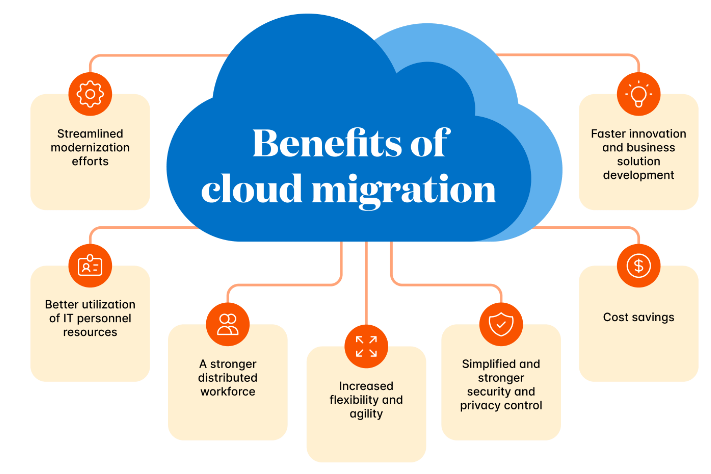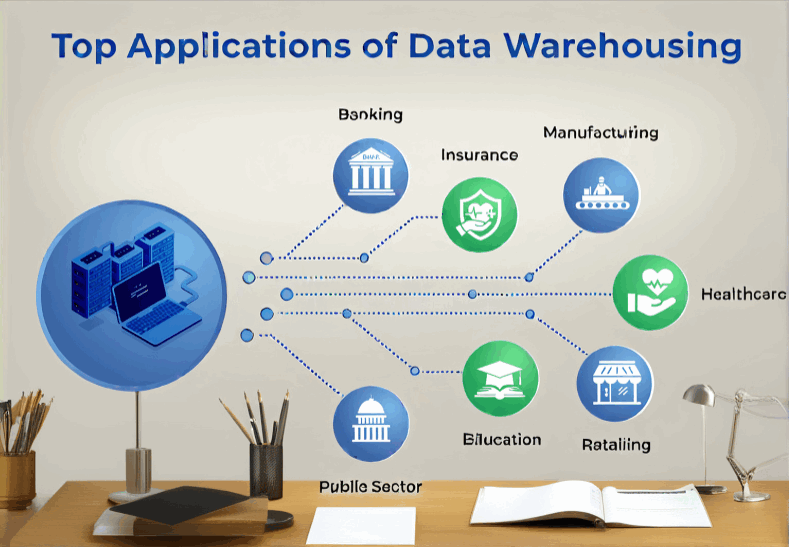Unlocking Business Potential with Modern Data Solutions and AI Technologies
In today’s hyper-competitive business world, the ability to harness data effectively is what sets successful organizations apart. From data warehouse systems to advanced AI customer service tools, businesses are increasingly leveraging cutting-edge technologies to optimize their operations and gain a competitive edge. As industries evolve, solutions such as data analytics, machine learning, and cloud platforms like Google Cloud, AWS, and Alibaba Cloud have become indispensable.
This comprehensive guide explores how businesses can use data-driven strategies and AI-powered technologies to improve performance across operations, sales, and customer service while driving innovation in areas such as fraud analysis, route optimization, and predictive analysis.
Data Warehouse: The Cornerstone of Data-Driven Decisions
A data warehouse serves as the foundation for modern data strategies. By consolidating structured and unstructured data from various sources, it enables organizations to store and analyze vast amounts of information efficiently. This central repository facilitates seamless ETL (Extract, Transform, Load) processes, ensuring that data is organized and ready for actionable insights.
Organizations rely on data warehouses for various applications:
- Predictive Analysis: Businesses use historical data to forecast future trends, from customer behavior to market fluctuations.
- Fraud Analysis: Financial institutions leverage data warehouses to detect anomalies and prevent fraudulent transactions.
- Route Optimization: Logistics companies analyze data to enhance delivery routes, reduce fuel costs, and improve service reliability.
With a robust data warehouse in place, companies can unlock new efficiencies and gain deeper insights, paving the way for better decision-making.
The Critical Role of Data Analytics
The sheer volume of data generated daily requires advanced tools and expertise to extract meaningful insights. This is where data analytics comes into play. By applying statistical and computational methods to data, organizations can identify patterns, trends, and anomalies.
Key benefits of data analytics include:
- Enhanced Sales Strategies: Businesses can identify high-performing products, understand customer preferences, and refine their marketing campaigns.
- Optimized Operations: Analytics can uncover inefficiencies in workflows, enabling process improvements and cost reductions.
- Personalized Customer Experiences: With insights into customer behavior, companies can deliver tailored experiences that increase satisfaction and loyalty.
To execute these strategies effectively, skilled professionals such as data analysts and data engineers are essential.
Data Engineers and Analysts: The Backbone of Data-Driven Organizations
Behind every successful data initiative is a team of skilled professionals. Data engineers design and maintain the infrastructure required for collecting, storing, and processing data. Their expertise ensures that systems like ETL pipelines run smoothly, providing reliable data for analysis.
Data analysts, on the other hand, focus on interpreting this data to deliver actionable insights. They identify trends, uncover hidden opportunities, and provide recommendations that align with business objectives.
Together, data engineers and data analysts enable organizations to harness the full potential of their data. Companies that invest in these roles often experience significant improvements in performance and decision-making.
AI and Machine Learning: Revolutionizing Business
Artificial Intelligence (AI) and machine learning are at the forefront of technological innovation. These technologies empower businesses to automate processes, improve accuracy, and deliver superior customer experiences.
AI Customer Service and Chatbots
One of the most impactful applications of AI is in customer service. Advanced chatbot solutions leverage RAG (Retrieval-Augmented Generation) and natural language processing to provide instant, accurate responses to customer inquiries. These chatbots:
- Handle repetitive queries, freeing up human agents for complex tasks.
- Operate 24/7, ensuring customers receive support whenever they need it.
- Use predictive analysis to anticipate customer needs and deliver proactive solutions.
For instance, e-commerce companies use AI-driven chatbots to assist with order tracking, returns, and product recommendations, enhancing customer satisfaction and loyalty.
Fraud Analysis and Route Optimization
Fraud prevention and logistics optimization are two critical areas where machine learning shines. Algorithms can analyze massive datasets to identify suspicious activities, reducing financial losses due to fraud. Similarly, route optimization leverages machine learning to optimize delivery schedules, reduce travel time, and minimize costs.
Cloud Platforms: Enabling Scalability and Innovation
As businesses scale, the demand for flexible and efficient infrastructure grows. Cloud platforms like Google Cloud, AWS, and Alibaba Cloud provide the scalability and performance needed for modern data solutions.
Why Choose Cloud?
Cloud platforms offer numerous advantages:
- Scalability: Businesses can easily expand their resources as needed.
- Cost-Effectiveness: Pay-as-you-go pricing models eliminate the need for large upfront investments.
- Integration: Seamless integration with tools for ETL, AI, and data analytics.
For example, companies implementing area scoring use cloud computing to analyze regional data, enabling better decision-making for market expansion. The cloud also supports automation, which is crucial for tasks like fraud analysis and predictive analysis.
Automation: Driving Efficiency Across Industries
Automation is revolutionizing industries by streamlining processes and reducing manual effort. From automating ETL pipelines to deploying AI-powered chatbots, automation improves efficiency and accuracy.
Applications of Automation
- Sales and Marketing: Automating lead generation and customer segmentation allows teams to focus on strategy.
- Operations: Automated workflows reduce downtime and improve productivity.
- Customer Service: AI-driven chatbots handle repetitive tasks, ensuring faster resolution times.
By embracing automation, businesses can allocate resources more strategically and achieve better outcomes.
Real-World Use Cases
Case Study: Fraud Analysis in Banking
A global bank implemented a fraud analysis system powered by AI and machine learning. By analyzing transaction patterns in real-time, the system flagged suspicious activities with 98% accuracy. This proactive approach reduced fraudulent transactions by 60% within six months.
Case Study: Route Optimization in Logistics
A logistics company used route optimization tools to analyze delivery data and identify the most efficient routes. The result was a 20% reduction in fuel costs and a 15% improvement in on-time deliveries, leading to higher customer satisfaction.
Case Study: AI-Powered Chatbots in E-Commerce
An e-commerce giant deployed AI customer service chatbots to handle inquiries during peak shopping seasons. The chatbots managed over 70% of queries, freeing up human agents to address complex issues. This approach reduced response times by 50% and boosted customer satisfaction ratings.
Future Trends in Data and AI
The future of data and AI is promising, with advancements in technologies like machine learning, predictive analysis, and cloud computing driving innovation. Businesses can expect to see:
- Increased adoption of RAG-powered chatbots for personalized customer experiences.
- Greater reliance on ETL tools for seamless data integration.
- Enhanced area scoring techniques for market analysis and expansion.
By staying ahead of these trends, organizations can continue to thrive in an increasingly data-driven world.
Conclusion
In a rapidly evolving business landscape, leveraging modern data solutions and AI technologies is no longer optional. From data warehouses and data analytics to cloud platforms and automation, the tools are available to transform operations and drive growth.
By investing in skilled professionals like data engineers and data analysts, businesses can build a strong foundation for success. The integration of AI-powered solutions such as chatbots and fraud analysis tools further enhances efficiency and customer satisfaction.
Embrace the power of machine learning, predictive analysis, and cloud platforms like Google Cloud, AWS, and Alibaba Cloud to unlock your organization’s full potential. Let data and AI guide your journey to success.







